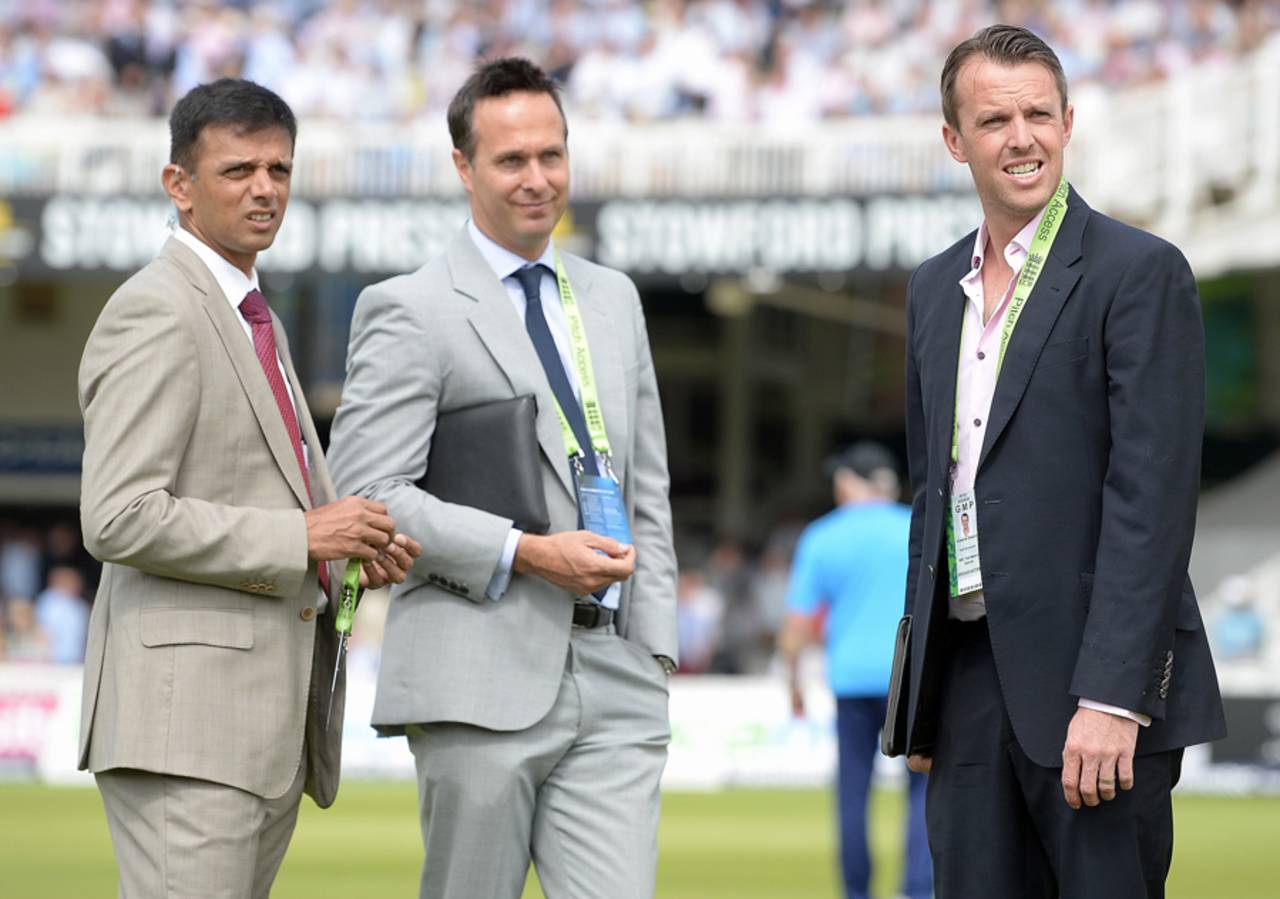The ECB has compiled a shortlist of three candidates to replace Paul Downton in the rebranded role of director of England cricket.
Michael Vaughan,
Andrew Strauss and
Alec Stewart are believed to be the candidates discussed at a board meeting at Lord's on Thursday, with the ECB still to define the exact parameters of the role before making an appointment.
The board also announced Ian Lovett, the Middlesex chairman, as the new deputy chairman of the ECB and officially nominated Giles Clarke as the first president of the organisation. But it is the appointment of the new director of England cricket that will have most relevance to the fortunes of the men's team over the next few years.
While there is considerable doubt over whether such a role is necessary - the ECB already have a CEO, a COO and any number of other managers and coaches - the new management have decided that they require someone to help create the right environment in order to achieve lasting success for the men's international teams. All of which suggests that whoever is appointed may well be straying on to the territory of head coach. Peter Moores can ill afford an unsuccessful tour of the Caribbean.
With the ECB suffering in recent times for its inability to communicate reasonable ideas to the general public - James Whitaker has sometimes tied himself into knots as he explained team selections - the new individual will be expected to have a more public-facing role than Downton and an ability to communicate far better with the media. The cynical might suggest it is even a 'style over substance' position.
While the scope of Downton's job specification was, on the surface, vast, to watch him
in action was to see a man attempting to carve out a role for himself. There were already individuals with experience and knowledge of their positions appointed to every aspect of Downton's remit, which left him wandering around the outfield at the time the toss was taken or sitting in selection meetings despite having no voice on the panel. He was, in short, an expensive white elephant kitted out in a blazer.
It appears the new manager will be freed of many aspects of Downton's role, though. So the new incumbent will not be required to manage the women's game, the age-group game (except where it becomes directly relevant) or the disability game. It may well be, though, that they take on the role of selector. While Whitaker will be in the Caribbean for the final two Tests - he was originally planning to watch only the final one - his position remains especially vulnerable.
The appointment of Clarke as president remains contentious. Not only was he one of the key figures in the "Big Three" takeover of the ICC - a decision that is already beginning to look self-defeating and will only look worse with time - he was also an architect of the unsustainable ECB business model which sees the international team flogged around the world in an endless race for a few dollars more.
On Wednesday, Clarke provided a reminder of his abrasive nature by storming out of the dinner to celebrate the launch of the 2015 Wisden Almanack. Clarke took exception to a speech by former ICC president, Ehsan Mani and then became embroiled in a robust exchange of views with Wisden's editor, Lawrence Booth, after onlookers suggested Clarke's behaviour fell somewhat below the standards expected of a guest at such an event. Yet the ECB continues to view Clarke as an asset.
